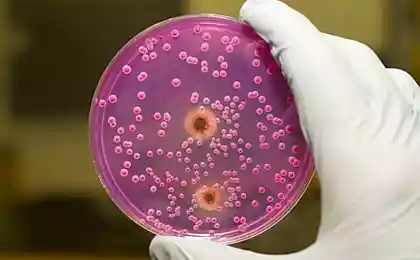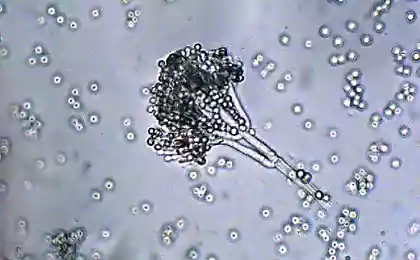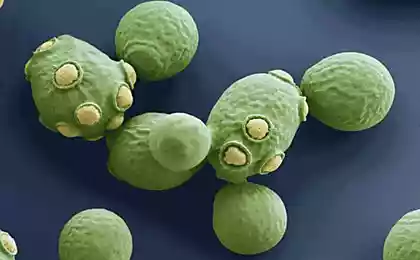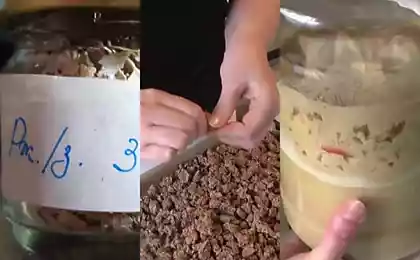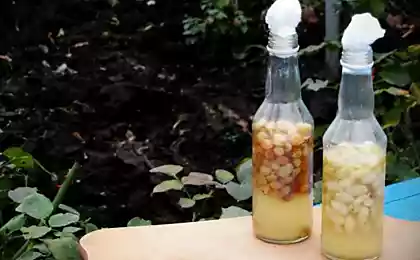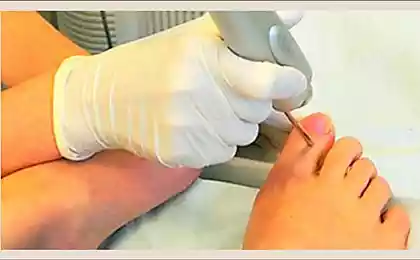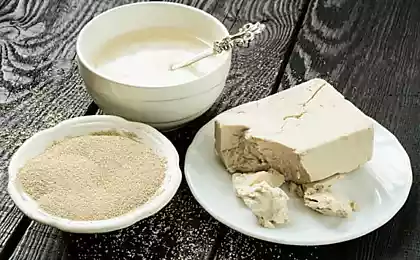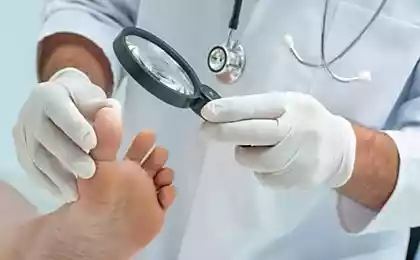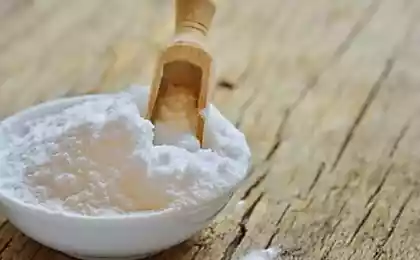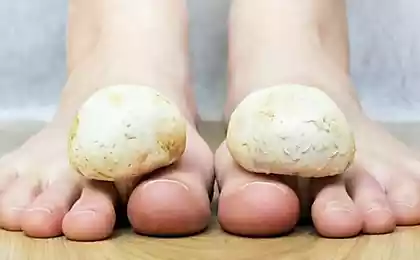652
Candidiasis and its treatment
Bacteria of the genus Candida in the human body belong to the fungal infection known as CANDIDIASIS.
Аlbicans Candida lives in all mucous membranes such as the intestines, eyes, ears, bladder, stomach, lungs, vagina, etc.
This is one of the millions of other friendly organisms that serve us for use. One of the important features of Candida is to recognize and destroy harmful bacteria.
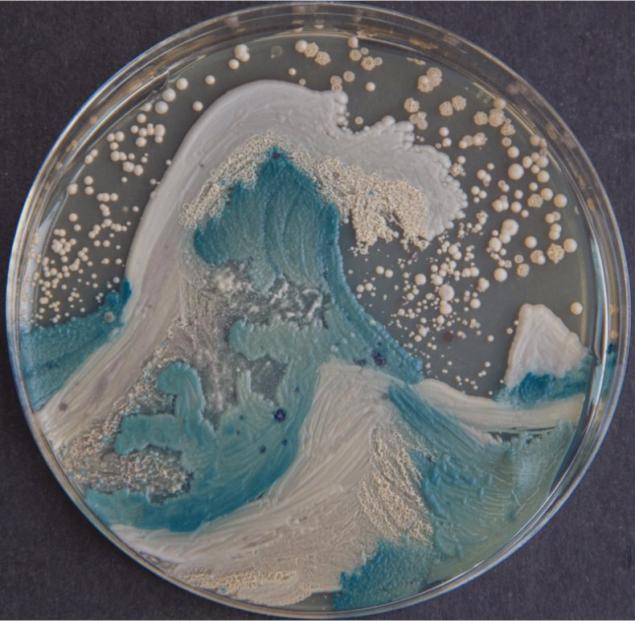
When Candida аlbicans is under the control of the immune system and balanced with other bacteria, it does not pose any problems for the body.
But when these fungus get out of control and begin to grow — there are different symptoms, including allergies, fatigue, headaches, bloating, digestive disorders, vaginitis, arthritis, muscle weakness, joint pain, nasal congestion, pain or tightness in the chest, blurred vision, ear problems, weight gain, hypoglycemia, multiple sclerosis, Crohn's disease, foggy thinking, memory loss and many others.
THIS is a VERY COMMON DISEASE, but it remains a controversial medical diagnosis and is not recognized widely among practitioners.
The spread of the disease contribute to:
A weakened immune system increases the risk of recurrent infections and other diseases.
WHAT INFLUENCES UNCONTROLLED MULTIPLICATION OF CANDIDA
A healthy immune system maintains a balance of Candida with other microorganisms on mucous membranes, but under certain conditions they begin to grow and went out of control, into the bloodstream.
Causes of immune system dysfunction are varied and complex but antibiotics are the biggest culpritsbecause they wipe out friendly micro-organisms in the digestive system.
The Candida is resistant to antibiotics, the imbalance of microorganisms allows the yeast to multiply uncontrollably.
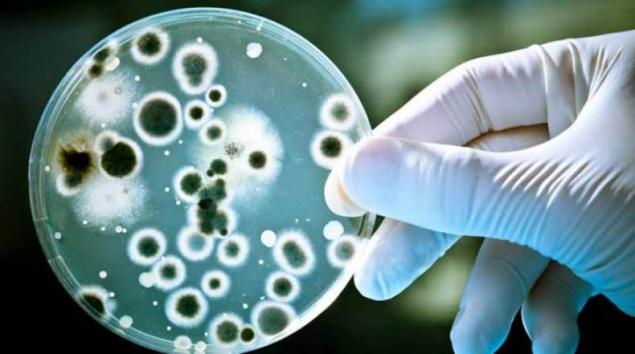
Other causes of candidiasis include:
By themselves the yeast Candida has a branched structure, they grow through the intestinal wall and their spores get into the bloodstream and various organs, causing systemic candidiasis. And they leave microscopic holes in the intestinal mucosa allowing toxins, undigested food particles, bacteria and yeast constantly penetrate into the circulatory system.
The fact that Candida from the gut can enter the bloodstream through its walls, has been scientifically proven (Infection and Immunity. 1993;61:619-626).
This condition is known as "leaky gut syndrome"which causes food allergies, adrenal fatigue and many other health problems.
The branched structure of the Candida causes major damage to the intestinal walls, the result is malabsorption of nutrients, which further aggravate the disease.
HOW to DIAGNOSE CANDIDABefore you begin treatment, you must accurately diagnose the presence of candidiasis. Food allergies, parasites, "leaky gut syndrome", etc. have similar symptoms and, therefore, accurate diagnosis is important.
There are several ways to check this. These include:
1. TEST SALIVA for levels of antibodies to IgA, IgM IgG globulins. These antibodies the body produces to fight different strains of Candida.
3. BACTERIOLOGICAL examination of FECES — stool test can determine the presence of yeast in the gut, however, this analysis gives a vague idea of the severity of the infectious process.
If any of these methods positively diagnose Candida, you have to take this seriously.
It should be noted that CANDIDIASIS IS an EXTREMELY RESISTANT INFECTION AND DIFFICULT to ERADICATED.
TREATMENTPHASE 1 — THE ELIMINATION OF CANDIDA
1. An ANTIFUNGAL DIET is to stop taking foods contaminated by the fungus such as nuts, peanuts, sugar and starches, which feed Candida.
Start this diet for two weeks before using any supplements to starve the Candida fungus and make it more vulnerable to treatment.
To continue the diet throughout the treatment Protocol. This is very important because no treatment will be successful if you will introduce fungus into the body or continuous to feed them and prevent breeding.
2. UNDECANOIC ACID — 200 mg three times a day. This fatty acid is extracted from castor oil and has proved to be a powerful natural antifungal.
CAPRYLIC ACID is another drug that is extracted from coconut oil, is also widely used, but undecanoic acid 6 times stronger.
Undecanoic and Caprylic acids that help to eliminate systemic Candida infections. The system effect is very important because most treatments only kill fungus in the intestines, and many believe that the immune system then incorporate everything else.
Many patients have a weakened immune system that will not eradicate the infection.
3.OLIVE LEAF EXTRACT — 5 to 10ml twice a day. He also has a systemic antifungal, antiviral and antibacterial properties, which work well with the use of undecanone and Caprylic acids.
4. DIGESTIVE ENZYMES – take with every meal as Candida disturbs the digestion.
After the first two weeks anticandida diet use the supplements mentioned above, for the past 2 months. The time course of recovery depends on how deeply embedded the fungus is in your tissues and from your accuracy to adhere to the treatment plan.
To completely eradicate the fungus, it takes time FROM SEVERAL MONTHS TO a YEAR. Re-testing after 2 months of treatment.
In some resistant cases, we recommend the intensification of cleaning the body by taking the drug nystatinwhich is antifungal. We use a 3 - week Protocol developed by Dr Bruce Semon MD. This Protocol will help to eradicate the fungus in the intestines as nystatin is not absorbed into the blood and, therefore, has no systemic action.
STAGE 2 – ADMISSION OF BENEFICIAL BACTERIA
1. PREBIOTICS — to include in the diet foods: bananas, onions, asparagus, chicory and burdock root, fructosidase they contain oligosaccharides, which are used with beneficial microorganisms in the intestines like food. If you don't like these foods there are many prebiotic supplements.
2. PROBIOTICS — the beneficial bacteria in the gut need to be replaced, and we recommend taking a probiotic mixtures. This will help prevent further Candida re-infection.
STEP 3 – THE ELIMINATION OF INTESTINAL DAMAGE AND IMPROVE THE IMMUNE SYSTEM
1. "REPAIR" the GUT — glutamine, zinc, Pantothenic acid and other nutrients that play an important role in the differentiation of the cells lining the gut to help repair "leaky gut", caused by Candida.
2. Improving the IMMUNE SYSTEM is an important step to help prevent reinfection in the future.
There are many supplements that help to improve the immune system. Ones we recommend include vitamin D3 and Glyconutrients.
All the additives set out in steps 2 and 3 must be taken together after step 1.
Treatment these supplements is from 6 to 8 weeks or more, depending on the progress of the treatment.
After you have completed the course of treatment, the mucosa of your intestines to be more resistant to re-infection by improving immunity and sbalansirovannoi intestinal flora.
Symptoms at this stage should disappear. Many patients also report weight loss, since excessive "bloat" is no more.published
The materials are for informational purposes. Remember, self-life-threatening, for advice regarding the use of any medicines and methods of treatment, contact your doctor.
P. S. And remember, only by changing their consumption — together we change the world! ©
Source: //www.facebook.com/groups/Thyreotom/permalink/970750222987505/
Аlbicans Candida lives in all mucous membranes such as the intestines, eyes, ears, bladder, stomach, lungs, vagina, etc.
This is one of the millions of other friendly organisms that serve us for use. One of the important features of Candida is to recognize and destroy harmful bacteria.

When Candida аlbicans is under the control of the immune system and balanced with other bacteria, it does not pose any problems for the body.
But when these fungus get out of control and begin to grow — there are different symptoms, including allergies, fatigue, headaches, bloating, digestive disorders, vaginitis, arthritis, muscle weakness, joint pain, nasal congestion, pain or tightness in the chest, blurred vision, ear problems, weight gain, hypoglycemia, multiple sclerosis, Crohn's disease, foggy thinking, memory loss and many others.
THIS is a VERY COMMON DISEASE, but it remains a controversial medical diagnosis and is not recognized widely among practitioners.
The spread of the disease contribute to:
- the widespread use of antibiotics,
- eating refined carbohydrates and yeast
- impaired immunity due to exposure to environmental toxins,
- poor diet and lifestyle.
A weakened immune system increases the risk of recurrent infections and other diseases.
WHAT INFLUENCES UNCONTROLLED MULTIPLICATION OF CANDIDA
A healthy immune system maintains a balance of Candida with other microorganisms on mucous membranes, but under certain conditions they begin to grow and went out of control, into the bloodstream.
Causes of immune system dysfunction are varied and complex but antibiotics are the biggest culpritsbecause they wipe out friendly micro-organisms in the digestive system.
The Candida is resistant to antibiotics, the imbalance of microorganisms allows the yeast to multiply uncontrollably.

Other causes of candidiasis include:
- the contraceptive pill,
- alcohol abuse,
- stress,
- poor nutrition,
- the lack of rest, etc.
By themselves the yeast Candida has a branched structure, they grow through the intestinal wall and their spores get into the bloodstream and various organs, causing systemic candidiasis. And they leave microscopic holes in the intestinal mucosa allowing toxins, undigested food particles, bacteria and yeast constantly penetrate into the circulatory system.
The fact that Candida from the gut can enter the bloodstream through its walls, has been scientifically proven (Infection and Immunity. 1993;61:619-626).
This condition is known as "leaky gut syndrome"which causes food allergies, adrenal fatigue and many other health problems.
The branched structure of the Candida causes major damage to the intestinal walls, the result is malabsorption of nutrients, which further aggravate the disease.
HOW to DIAGNOSE CANDIDABefore you begin treatment, you must accurately diagnose the presence of candidiasis. Food allergies, parasites, "leaky gut syndrome", etc. have similar symptoms and, therefore, accurate diagnosis is important.
There are several ways to check this. These include:
1. TEST SALIVA for levels of antibodies to IgA, IgM IgG globulins. These antibodies the body produces to fight different strains of Candida.
- IgMantibodies indicate a current infection.
- IgGantibodies reflect a past or current infection and, as a rule, are synthesized after initial impact (this means that your infection is more serious, if the level of IgG increased).
- Elevated levels of IgA may indicate a more superficial Candida infection.
3. BACTERIOLOGICAL examination of FECES — stool test can determine the presence of yeast in the gut, however, this analysis gives a vague idea of the severity of the infectious process.
If any of these methods positively diagnose Candida, you have to take this seriously.
It should be noted that CANDIDIASIS IS an EXTREMELY RESISTANT INFECTION AND DIFFICULT to ERADICATED.
TREATMENTPHASE 1 — THE ELIMINATION OF CANDIDA
1. An ANTIFUNGAL DIET is to stop taking foods contaminated by the fungus such as nuts, peanuts, sugar and starches, which feed Candida.
Start this diet for two weeks before using any supplements to starve the Candida fungus and make it more vulnerable to treatment.
To continue the diet throughout the treatment Protocol. This is very important because no treatment will be successful if you will introduce fungus into the body or continuous to feed them and prevent breeding.
2. UNDECANOIC ACID — 200 mg three times a day. This fatty acid is extracted from castor oil and has proved to be a powerful natural antifungal.
CAPRYLIC ACID is another drug that is extracted from coconut oil, is also widely used, but undecanoic acid 6 times stronger.
Undecanoic and Caprylic acids that help to eliminate systemic Candida infections. The system effect is very important because most treatments only kill fungus in the intestines, and many believe that the immune system then incorporate everything else.
Many patients have a weakened immune system that will not eradicate the infection.
3.OLIVE LEAF EXTRACT — 5 to 10ml twice a day. He also has a systemic antifungal, antiviral and antibacterial properties, which work well with the use of undecanone and Caprylic acids.
4. DIGESTIVE ENZYMES – take with every meal as Candida disturbs the digestion.
After the first two weeks anticandida diet use the supplements mentioned above, for the past 2 months. The time course of recovery depends on how deeply embedded the fungus is in your tissues and from your accuracy to adhere to the treatment plan.
To completely eradicate the fungus, it takes time FROM SEVERAL MONTHS TO a YEAR. Re-testing after 2 months of treatment.
In some resistant cases, we recommend the intensification of cleaning the body by taking the drug nystatinwhich is antifungal. We use a 3 - week Protocol developed by Dr Bruce Semon MD. This Protocol will help to eradicate the fungus in the intestines as nystatin is not absorbed into the blood and, therefore, has no systemic action.
STAGE 2 – ADMISSION OF BENEFICIAL BACTERIA
1. PREBIOTICS — to include in the diet foods: bananas, onions, asparagus, chicory and burdock root, fructosidase they contain oligosaccharides, which are used with beneficial microorganisms in the intestines like food. If you don't like these foods there are many prebiotic supplements.
2. PROBIOTICS — the beneficial bacteria in the gut need to be replaced, and we recommend taking a probiotic mixtures. This will help prevent further Candida re-infection.
STEP 3 – THE ELIMINATION OF INTESTINAL DAMAGE AND IMPROVE THE IMMUNE SYSTEM
1. "REPAIR" the GUT — glutamine, zinc, Pantothenic acid and other nutrients that play an important role in the differentiation of the cells lining the gut to help repair "leaky gut", caused by Candida.
2. Improving the IMMUNE SYSTEM is an important step to help prevent reinfection in the future.
There are many supplements that help to improve the immune system. Ones we recommend include vitamin D3 and Glyconutrients.
All the additives set out in steps 2 and 3 must be taken together after step 1.
Treatment these supplements is from 6 to 8 weeks or more, depending on the progress of the treatment.
After you have completed the course of treatment, the mucosa of your intestines to be more resistant to re-infection by improving immunity and sbalansirovannoi intestinal flora.
Symptoms at this stage should disappear. Many patients also report weight loss, since excessive "bloat" is no more.published
The materials are for informational purposes. Remember, self-life-threatening, for advice regarding the use of any medicines and methods of treatment, contact your doctor.
P. S. And remember, only by changing their consumption — together we change the world! ©
Source: //www.facebook.com/groups/Thyreotom/permalink/970750222987505/
Management technology child, giving the desired result
5 recipes to cleanse the body of Marwa Ohanyan
